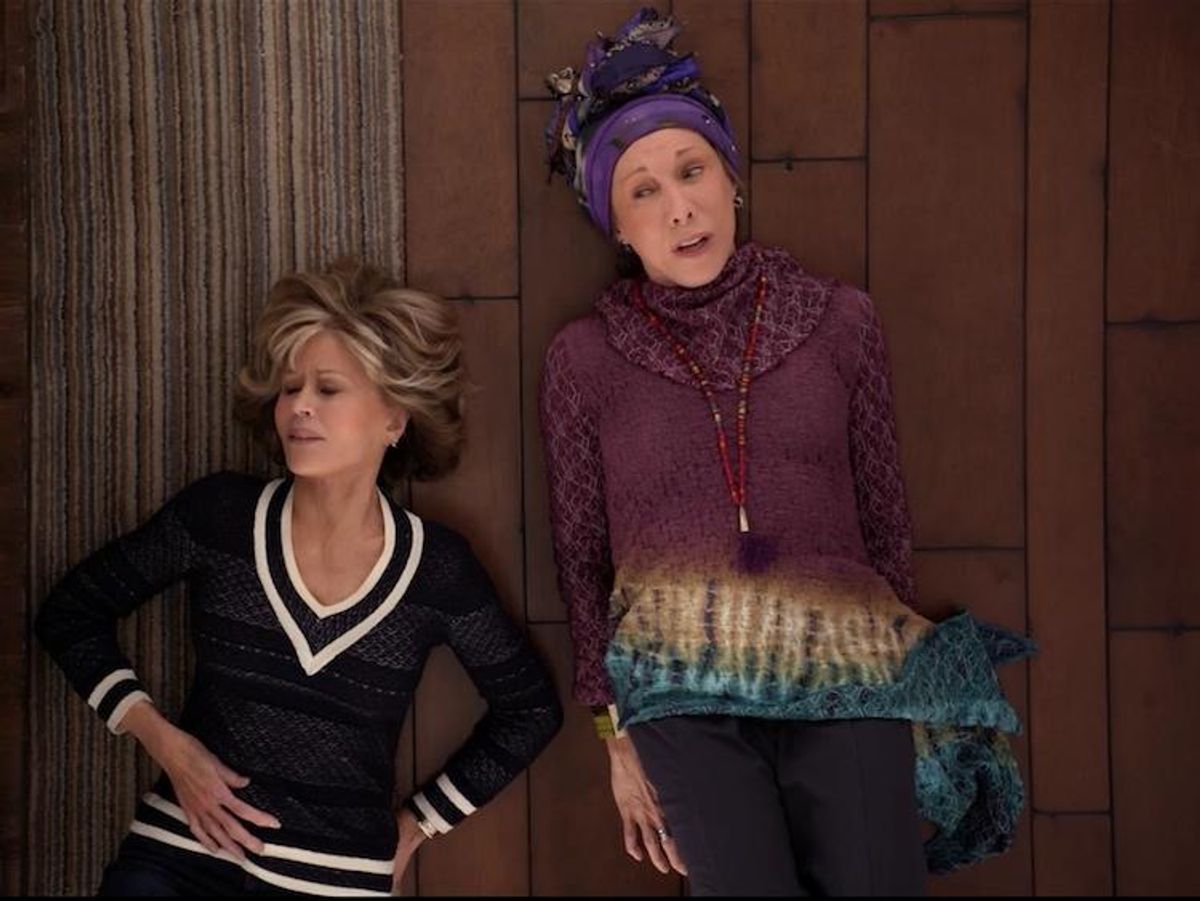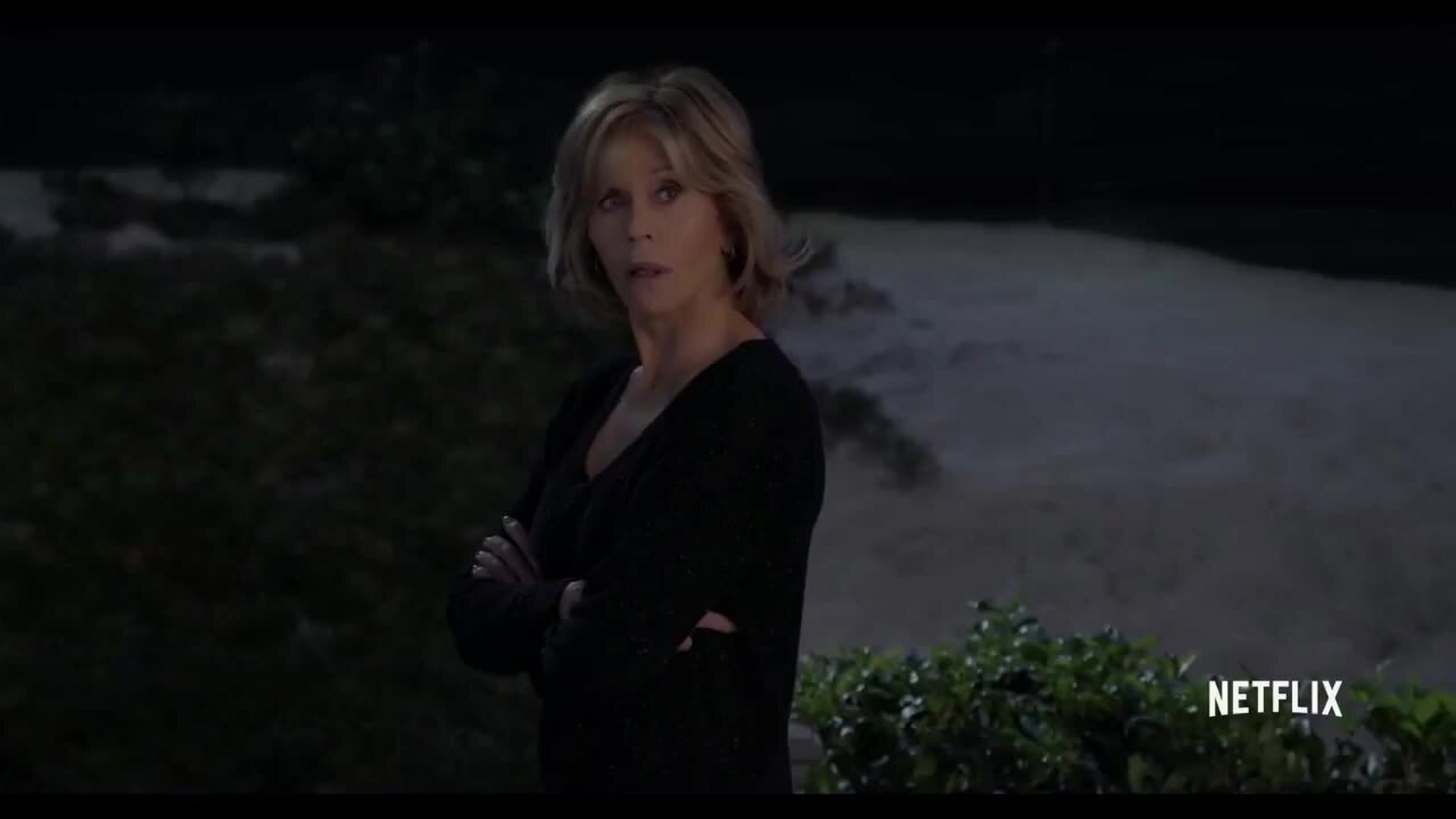
Netflix
In its third season, Jane Fonda and Lily Tomlin’s Netflix comedy has beautifully hit its stride (minor spoilers ahead).
March 29 2017 4:43 PM EST
May 26 2023 2:22 PM EST
By continuing to use our site, you agree to our Private Policy and Terms of Use.

In its third season, Jane Fonda and Lily Tomlin’s Netflix comedy has beautifully hit its stride (minor spoilers ahead).
Grace & Frankiealways had potential--throwing Jane Fonda and Lily Tomlin together is a no-brainer, and Martin Sheen and Sam Waterston are no slouches in the acting department, either--but the first season was something of a letdown.
It had a great premise. Two frenemies are brought together, odd couple style, when their husbands reveal they're gay and are in love with each other. Series co-creator Marta Kauffman also had a serious comedic pedigree--you may have heard of this show she did called Friends. But even bubbling over with talent, the show's writing felt forced and the jokes felt stale. Season two fared better, with an emotionally rich and complex conclusion. But in its third season, currently streaming on Netflix, Grace & Frankie is nothing short of a goddamn delight.
Related | Face-to-Face: Jane Fonda & Lily Tomlin
The writing is finally up to par with the acting talent, both in terms of jokes and plot. By giving Grace and Frankie something to do--launching a line of vibrators for the mature woman, the Menage a Moi--the show gets to explore themes such as ageism in a fresh, innovative way: witness Grace and Frankie realizing the reason they can't get a loan for their business is their advanced age; or when they both get stuck on the floor after literally falling and not being able to get up; or the resulting humiliation they feel when the kids pitch in to get them life alert necklaces. These moments are real without wading too deeply into schmaltzy sentimentality (as in previous seasons); they're also genuinely funny and add layers to the relationship between Fonda's WASPy Grace and Tomlin's hippie Frankie. And seeing Jane Fonda brandishing a pistol is intensely satisfying.
Then there's Robert and Sol. As gay men who come out late in life, Robert (Sheen) and Sol (Waterston) missed the first wave of gay liberation, but find themselves determined not to sit on the sidelines in the fight for equality. Robert even gets to come out to his mother, who must be like a hundred and so doesn't take it well in the least. The first two seasons saw them navigating life as newly out gay men and as a gay couple, and like most comings-out, it was awkward and sometimes hard to watch. But by the third season, they're a finely tuned machine of schticky and sweet. Robert's description of an especially tricky ship-in-a-bottle he built--"I call her Mariah Carey because she's top-heavy and impossible."--is one of my favorite lines on any television show this season.
The rest of the cast is also stellar. Baron Vaughn is wonderfully weird as Frankie and Sol's adopted son Bud--dating a girl even stranger than he is--while '90s heartthrob Ethan Embry (Can't Hardly Wait, anyone?) is adorable as doe-eyed screw-up Coyote, Frankie and Sol's other adopted son. The show finally found out what to do with Brooklyn Decker, who plays one of Grace and Robert's daughters Mallory, giving her an interesting story arc this season and moments to shine comedically, while their other daughter Brianna (June Diane Raphael) gets some human emotions to balance out her hyperbitch realness (which she does brilliantly).
Elsewhere, Tim Bagley (whom you may remember from Will & Grace as the Larry half of Chuck and Larry) is reliably hilarious as Peter, the constantly frazzled theater director: his exasperation with Robert during rehearsals of 1776--"How did my life lead me here? LOTTA MISTAKES, that's how!"--is one of several scenes he walks away with. And familiar character actor Roger Bart is pitch-perfect as Robert's omnipresent nemesis/showboating understudy Steve, who's waiting for even a hint of a cold to seize the part of John Adams for himself.
Grace & Frankie proves what happens when you give a show time to grow and, much like its titular heroines, this broad has still got a lot of life left.

Beware of the Straightors: 'The Traitors' bros vs. the women and gays